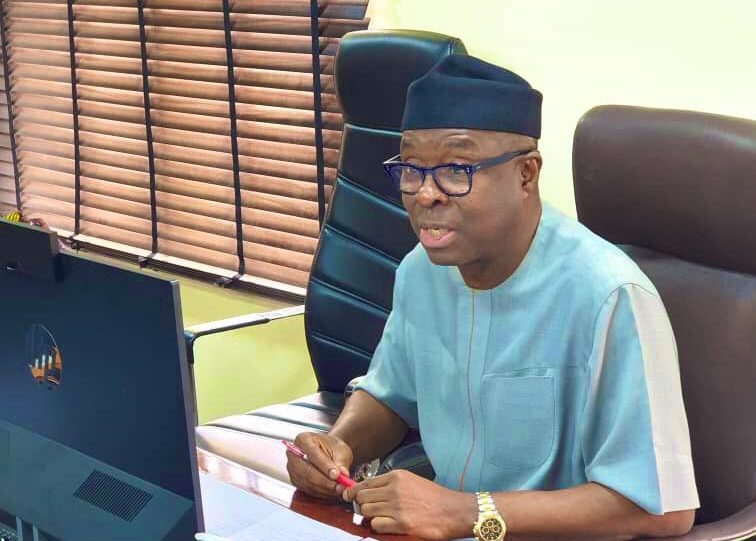The Attorney General of the Federation and Minister of Justice, Abubakar Malami, says the Federal Government is working to ensure that the country’s Intellectual Property (IP) law and administration are in line with current realities.
Malami said this on Monday when the Senior Counsellor, World Intellectual Property Organisation (WIPO), Ms Lorreta Asiedu, led a delegation to pay him a courtesy visit in his office in Abuja.
The minister was represented by the Permanent Secretary and Solicitor-General, Ministry of Justice, Mrs Beatrice Jedy-Agba.
“I assure you that we are committed to modernizing the entire IP system in Nigeria. This will include the Trade Mark Act, the Patent and Design Act.
“There are also legislative work that we will be looking at to ensure that it is in line with the new copyright law.
“We hope that this will also serve as catalyst for needed reforms in all aspect of IP law and administration and then bring them in line with current reality in this digital age,’’ Malami said.
Earlier, Asiedu said the visit was to seek the minister’s support on WIPO’s efforts in developing National Intellectual Property Policy and Strategy for the country.
She said that WIPO had been working with the Nigerian Copyright Commission, consultants and relevant stakeholders in developing the National IP Policy and Strategy for Nigeria.
“This request is a long standing one and we are happy that finally we are able to bring it to this level.
“This is where we can invite stakeholders to look at the document, appreciate it, add their input before it is finalised and validated for consideration by policymakers.
“We are here to seek your support by adopting the National IP policy and strategy,’’ the WIPO official said.
According to her, with this development, Nigeria will be joining other African countries that have adopted IP policy and strategy.
“What does this stand for the country is that it creates a framework within which WIPO and its partners can support the exploitation of the IP to make impact in the lives of IP users.
“Under our medium strategic plan, the five-year vision aimed at supporting IP so that it makes an impact in the lives of ordinary citizens.
“We want to harness the IP potential of youths in the country through the framework of the National IP policy and strategy.
“We are looking at supporting the youth entrepreneurs to understand and appreciate IP system; we want to engage in mentorship and coaching programmes,’’ Asiedu said.
According to her, WIPO also wants to use IP to support the country’s Development Goals.
“Within a framework of the National IP policy and strategy, we are able to identify the comparative advantage that the country has.
“So, the area in which a country has a comparative advantage that is what we dwell to ensure that we undertake projects that make impact in the lives of IP users community.’’
Asiedu added that WIPO intended to extend its reach not only within the legislative framework of the country, but also to knowledge production institutions like universities and research institutions.
“We also want to bring together industry and academia so that we bridge the gap from the time that idea takes off, to when it heads into market place,’’ she said.
Similarly, the delegation was received separately by the Ministers of Science and Technology, Dr Adeleke Mamora, Foreign Affairs, Geoffrey Onyeama and Trade and Investment, Otunba Adebayo Adeniyi.
They pledged to support the adoption and implementation of the National IP policy and strategy, saying that the policy was imperative to the development of all sectors of Nigeria’s economy.

